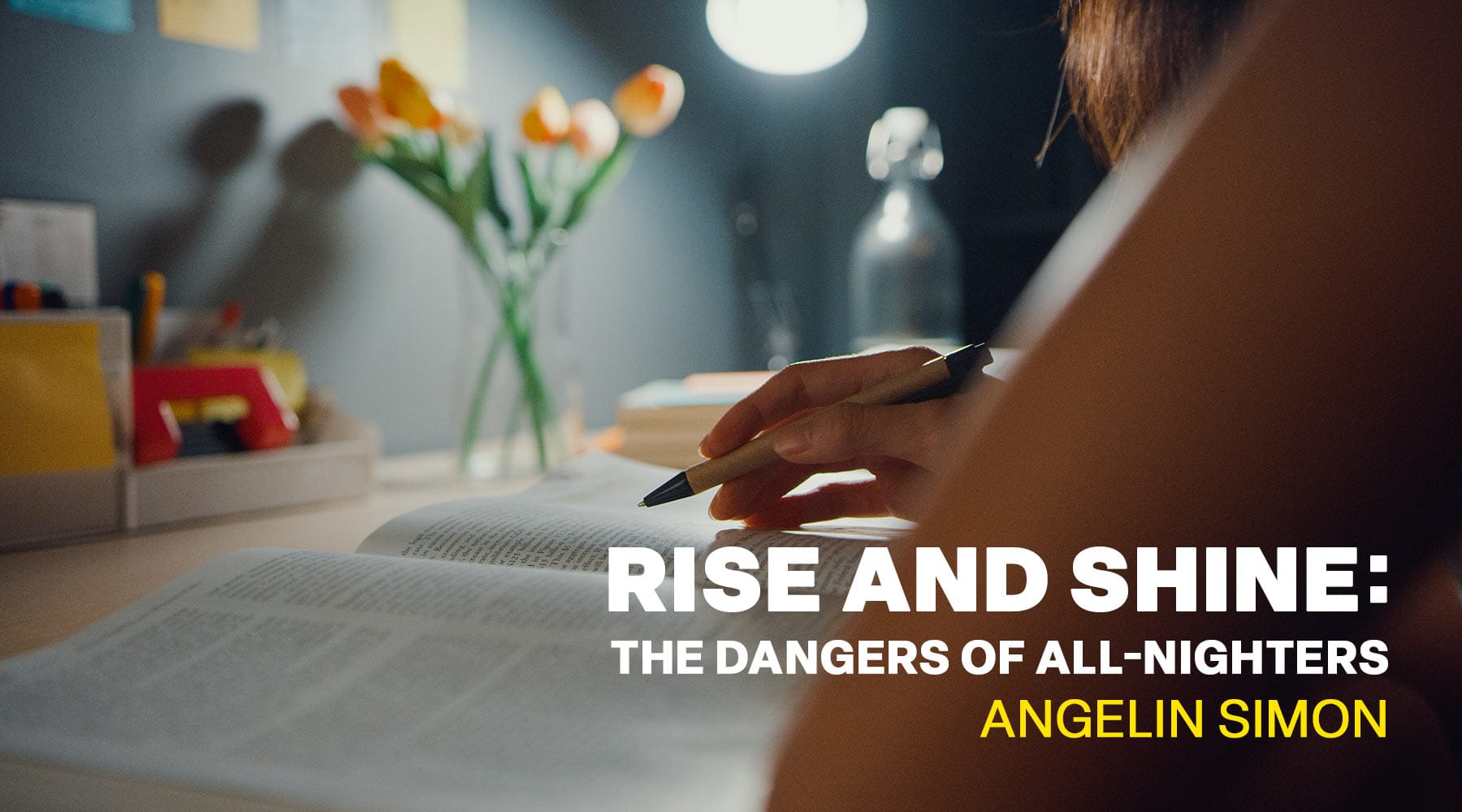According to Medical News Today, 20% of college students pull an all-nighter every month, and 35% stay up past 3 a.m. at least one night every week. As a college student myself, all-nighters are familiar to me, as I remember many of my colleagues pulling all-nighters before an exam even in high school. Even in college, the number of students having all-nighters only increases. At first, pulling all-nighters sounds like a good idea: there’s more time to study and review the material, and it seems like you will be able to retain the information better that way.
However, there are many detrimental effects to pulling all-nighters consecutively. For a person to stay awake and complete the all-nighter successfully, they often rely on caffeine. Although consuming caffeine in moderation is the norm, what ends up happening is that they develop addictions to caffeine.
A study titled “Caffeine dependence on teenagers” by Gail A Bernstein, Marilyn E Carroll, Paul D Thuras, Kelly P Cosgrove, and Megan E Roth, affiliated with the University of Minnesota Medical School, proved how dangerous caffeine dependence can be. Of 36 adolescents who participated in the study, research showed that “77.8% of teenagers aged 13-17 described withdrawal symptoms after cessation or reduction of caffeine intake.”
These addictions hurt adolescents’ growing and developing brains, and eventually, they carry these addictions into their adulthood as they enter various walks of life.
In addition, pulling all-nighters consecutively leads to irreversible brain damage as your brain is not getting the rest it needs. Our brain consists of neurons that are active when we are awake, and neurons that are active when we are asleep. By forcing oneself to stay awake, we are not allowing our “awake neurons” to take rest, leading to overexertion. Sleep deprivation combined with the likely consumption of caffeine to stay awake can create what ends up being a bad rest of your day–which makes one ask if pulling an all-nighter was even worth it.
Going into college, I knew that I did not enjoy all-nighters as a means to study for my exams. To combat this, I decided to wake up early instead to study. By going to sleep early and waking up early, I was able to wake up with my brain fully rested. Although I may have lost a few hours of sleep, in the end, I was glad I prioritized my body’s needs because that was what led to me being successful in my courses.
If you do decide to pull all-nighters, here are some tips to ensure that you give your body some rest:
- Avoid overconsumption of caffeine
- Take 30-minute naps in between
- Ensure that you take breaks of 5-10 minutes stretching/moving around
- Most importantly: try waking up early instead
Ultimately, the most important thing to do is to listen to what your body tells/demands/asks of you. When we start ignoring these signs of fatigue, it will eventually lead to detrimental health effects that are most definitely not worth getting an ‘A’ on the exam. The brain is perhaps one of the most important organs in our body. It is essential that we keep it healthy and energized for it to do our tasks efficiently.
References:
https://www.medicalnewstoday.com/releases/160265#1
https://pubmed.ncbi.nlm.nih.gov/11850129/




